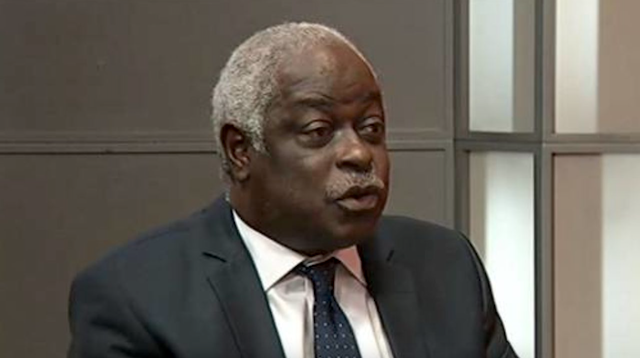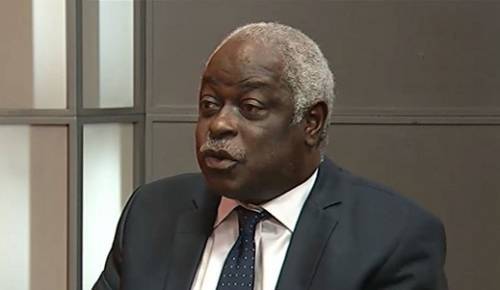“The scriptures reveal that God is always thinking about us”.
God’s open reward comes to those who pray without ceasing. This means praying at all times. It is not about praying in churches or at prayer meetings. It is about praying as Jesus commends, in spirit and truth. (John 4:24).
Those who pray without ceasing think about the Lord at all times. We live in the consciousness of God. Paul refers to this as: “walking in the spirit.” (Galatians 5:16). We try as much as possible not to lose our consciousness of God, not even for a moment.
Some people thought I was crazy when I said having sex with your wife provides the avenue for exuberant praise. But David says: “I will bless the Lord at all times; His praise shall continually be in my mouth. (Psalm 34:1).
If we are enjoying something, we should praise God in our hearts. This is because: “(It is) the living God who gives us richly all things to enjoy.” (1 Timothy 6:17). Jesus, the author and finisher of our faith, gave thanks to God before every meal. (John 6:11). It is God who: “satisfies the desire of every living thing.” (Psalm 145:16).
We become candidates for God’s open reward when all our terms of reference come from God. If we watch a film, we watch it with God. We converse with Him about what is happening on the screen, even if fictional:
“Oh my God, why do You let this kind of thing happen?” “Oh my God, look at what You did for that man.” “Oh Lord, when will you turn this kind of thing around?” “Oh God, You are such a wonderful person.”
Thinking God
David observes that God is always thinking about us: “How precious it is, Lord, to realise that you are thinking about me constantly!” (Psalm 139:17). He says to God by revelation: “You keep track of all my sorrows. You have collected all my tears in Your bottle. You have recorded each one in Your book.” (Psalm 56:8).
If God is always thinking about us, then we must always be thinking about God. Indeed, the psalmist describes the wicked man as one who does not think of God constantly: “The wicked, through the pride of his countenance, will not seek after God: God is not in all his thoughts.” (Psalm 10:4).
God is particular about this. He is described in the Bible as: “The desire of all nations.” (Haggai 2:7). A Book of Remembrance has been opened in heaven for those who think constantly about God:
“Then those who feared and loved the Lord spoke often of Him to each other. And He had a Book of Remembrance drawn up in which He recorded the names of those who feared Him and loved to think about Him.” (Malachi 3:16).
Accordingly, Paul says: “Whatever things are true, whatever things are noble, whatever things are just, whatever things are pure, whatever things are lovely, whatever things are of good report, if there is any virtue and if there is anything praiseworthy — meditate on these things.” (Philippians 4:8).
God is the only person in the universe to whom all these accolades apply.
Divine particularism
I had just finished writing a book of 100,000 words when God suddenly said: “Femi, every time you write about Me, start with a capital letter.” The Bible does not even do that consistently. But now I have to do it. I had to go through every sentence changing every he that applies to God or Jesus to He, every him to Him, every me to Me, and every my to My.
I had to search with a tooth-comb every sentence in over 300 pages to make these alterations. I do not have to tell you that it was tedious.
But God says: “Those who honour Me I will honour.” (1 Samuel 2:30). One of the ways He honours us is with open rewards. God rewards us openly when we are focused on Him in our hearts. He desires “truth in the inner parts.” (Psalm 51:6). He is the truth. (John 14:6).
Open secrets
We must not forget that everything we do secretly is open to God. God sees everything we do in the dark in the light of day. The writer of Hebrews says:
“Nothing in all creation is hidden from God. Everything is naked and exposed before His eyes, and He is the one to whom we are accountable.” (Hebrews 4:13).
A pastor asked an usher: “Is there any door through which I can enter the hall and join the service without being seen? The usher replied: “There is no way to enter the hall without God seeing you.”
Christ’s ambassadors
Jesus says: “Woe to you when all men speak well of you.” (Luke 6:26).
It was well known that Jesus was indifferent to public opinion. Trying to set Him up, His adversaries said: “Teacher, we know that You are true, and care about no one; for You do not regard the person of men, but teach the way of God in truth.” (Mark 12:14).
Paul equally disdains public opinion. He asks: “Do I seek to please men? For if I still pleased men, I would not be a bondservant of Christ.” (Galatians 1:10). “We have been approved by God to be entrusted with the gospel, even so we speak, not as pleasing men, but God who tests our hearts.” (1 Thessalonians 2:4).
At first glance, he seems to contradict himself when he tells the Romans: “Let each of us please his neighbour for his good, leading to edification.” (Romans 15:2). He also tells Timothy: “(A bishop) must have a good testimony among those who are outside.” (1 Timothy 3:7).
But there is no contradiction here. Without seeking the praise of men, and not caring what others think of us, we must care what they think of Christ. We are ambassadors for Christ. (2 Corinthians 5:20). We represent Christ so we must be godly. Christ must be shown to be excellent by the way we live.
We do not try to gain the approval of Christ by unbelievers. They may not like Him. They may be blind and resistant to His truth. Nevertheless, as His disciples, we must represent Christ truthfully. We must be careful to epitomise the truth of Christ.
Thus, Peter says: “Be careful to live properly among your unbelieving neighbours. Then even if they accuse you of doing wrong, they will see your honourable behaviour, and they will give honour to God when he judges the world.” (1 Peter 2:12).
Open reward
Some years ago, I was driving a van in Lagos. When I reached a roundabout, I heard a siren behind me. It came from an ambulance, so, I moved to one side to let it overtake me. When I wanted to continue on my way, a policeman of sorts blocked me and accused me of obstructing the traffic.
“Did you not see I was giving way to an ambulance?” I asked. But he was not interested. “You are under arrest,” he barked as he jumped into my van. He took me to their headquarters just off the roundabout. He then fined me N7,500 for obstructing the traffic, and N1,500 for not having a radio permit.
I asked him if he could see any radio in my car since I had none. He just smiled and said I could get my van out of there only if I paid N9,000.
For some strange reason, I did not argue further. I paid the fine and left. But when I got home, I became angry. I went down on my knees and complained to God:
“What kind of cheating is this? Your word says: “In righteousness, you shall be established; you shall be far from oppression, for you shall not fear; and from terror, for it shall not come near you.” (Isaiah 54:14). “No weapon formed against you shall prosper.” (Isaiah 54:17).
God told me to go back there the next day. “When you go, do not go in the van. Go in Karen’s Nissan Altima, and with her driver. Wear a suit and a tie.”
I did as God told me. When I arrived, a man stood on the sidewalk as I exited my car. I greeted him and he replied. Then he said:
“I know you from somewhere. Did you have a shop in Ikoyi at one time?”
“Yes, I did,” I replied.
“I used to be in Ikoyi, but I am now in Victoria Island,” he offered. “My name is Onikoyi, and I am in charge here. What can I do for you?”
I told him: “You are the person I need to see.”
I told him my predicament: “I made way for an ambulance and one of your boys arrested me for obstructing the traffic. He brought me here and fined me N7,500. Then he fined me N1,500 for not having a radio licence. But my van did not even have a radio.”
The man invited me into his office and told me to sit down. Then he asked: “Can you identify the officer who did this if you see him?”
“Yes, I can,” I replied.
Then he called one of his workers: “Call all those working under me and tell them to line up in front of my office.”
Immediately after he said this, the offending officer walked into his office for some reason.
“This is the man,” I exclaimed.
When the man saw me, he knew instinctively why I was there.
“So you are the one?” asked Mr. Onikoyi. “Your job is finished here. You are fired.”
There was no discussion about his offence. It was understood. My tormentor of yesterday was now rolling on the ground, begging for mercy.
Mr. Onikoyi said: “This man is a fool. He has two wives.”
I do not know how the matter was subsequently resolved. Mr. Onikoyi gave me his complimentary card. He said: “If anybody bothers you again in Victoria Island, just phone me.” Then he instructed that my money be refunded.
I thanked him profusely and left. But the glory belonged to God.
Jesus says: “Talk to your Father in the closet and He will reward you openly.” The open reward came a week or two later.
We wanted to turn from a main street to a side one. The traffic warden directed us to go. The car in front of us did as directed. But when we followed, the officer stopped us and complained that we moved without authorisation.
He told us to park on the roadside. When we did, he entered the car, sat beside my driver, and said he would give us a traffic violation.
I was at the back and said nothing.
“You are saying nothing, oga, I will have to take you to Muri Okunola.”
I ignored him, so he told my driver to proceed to Muri Okunola.
When we arrived, he came out of the car, and I also came out.
Suddenly, we were surrounded by a large number of the officers.
“What are you doing here, Sir?” they asked in a chorus.
Then they begged me that I should not go to see Mr. Onikoyi.
They prevailed on me to leave without making a complaint and without incident.
Since then, nobody has harassed me on the road in Victoria Island, Lagos. God rewarded my secret prayer openly.
CONCLUDED




![[Devotional] IN HIS PRESENCE: Do your best and leave the results to God](https://thenewsguru.ng/wp-content/uploads/2023/02/Screenshot-2023-02-21-at-5.48.27-AM.png)